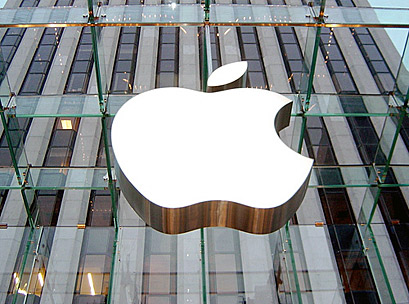 Apple Pay, meant to inject momentum into a fragmented market for the emerging mobile payments sector, has instead highlighted the squabbles between retailers and the banking and payments industry.
Apple Pay, meant to inject momentum into a fragmented market for the emerging mobile payments sector, has instead highlighted the squabbles between retailers and the banking and payments industry.
Since Apple Pay made its debut on October 20 for US customers with the iPhone 6, several major retailers have said they would not use it.
That includes number one US retail group Walmart and the large pharmacy retail group CVS, which has disabled payment terminals that could accept Apple Pay.
“You’re never going to come up with anything as smooth (and) as easy as Apple Pay. But if you can’t use it, you’re going to use something else,” said Avivah Litan, an analyst at Gartner who follows mobile payments.
Litan said a few retailers, such as McDonald’s and Disney, like the system because it speeds transactions and “every fraction of a second goes to the bottom line.”
But she noted that for most retailers, credit card fees simply are too high.
Apple Pay has aligned itself with major banks and payment processors Visa and MasterCard, which take a cut of every transaction, typically two to three per cent.
Retailers, which often operate on razor thin profit margins, would like to cut or eliminate those fees, and Apple Pay does nothing to change that system.
“Most of the merchants have been hungry for competition,” Litan said.
Gartner projects mobile payments will hit $US721 billion ($A780 billion) around the world by 2017. But some estimates have been lowered recently amid squabbles over the type of technology used and payment structure.
Apple uses a “near field communication” or NFC chip, similar to that used by Google Wallet and Softcard, which has been slow to gain traction.
Although Apple has signed on most major US banks, Visa and MasterCard, and retailers like Macy’s and Staples, many others are baulking.
A coalition of merchants led by Walmart, Target and Sears called MCX is promoting its own system called CurrentC, using a different technology, and importantly, allowing retailers to bypass credit cards and use direct bank debits with lower transaction costs.
Apple Pay “really falls short when it comes to merchant value proposition,” said Litan.
Nitesh Patel, analyst with Strategy Analytics, said retailers are not necessarily targeting Apple but want “to avoid what they believe are excessive swipe fees and the cost of upgrading hardware and software to accept contactless payments.”
But he added that if Apple Pay catches on, the retailers will be forced to go along.
Patel said, however, that if the retailer sector does not unify around the contactless system used by Apple Pay, users may revert to their old habits.
“The merchant systems are never going to be as convenient as Apple’s,” Litan said.
“They can’t compete with Apple on convenience but they can on price. It’s going to boil down to price versus convenience, and price usually wins.”
AFP






